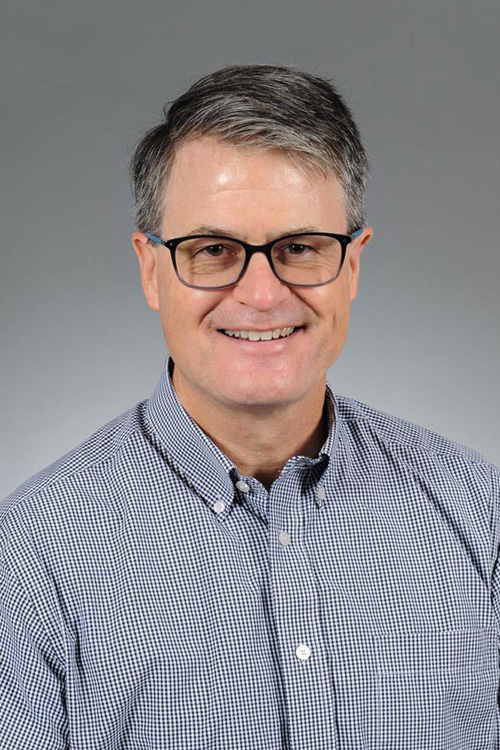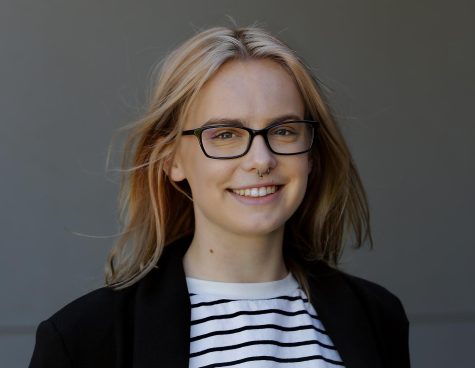Science communication professor supports students’ success after graduation
Phil Mixter has doctorate in immunology, microbiology; science is best written by those who understand it
Phil Mixter, pictured here, said he likes to stay in touch with his students after graduation. He tries to help them find job opportunities.
March 15, 2021
Science and journalism seem like they should be on completely different ends of the spectrum, but they tend to blend well together.
Science communication professor Phil Mixter said science is becoming an important part of people’s everyday lives, so having someone who understands science and writes about it is helpful.
It is important to understand how to think scientifically and analyze things rationally, he said.
“Those things are just a part of our reality,” he said. “I’d like to think that everybody needs a good conceptual and informed basis to deal with those things.”
Mixter said he got a bachelor’s degree in biochemistry at Oregon State University and continued to have an interest in biomedical science afterwards.
After getting a doctorate in microbiology and immunology at UCLA School of Medicine, Mixter did a postdoctoral fellowship at the Vermont College of Medicine.
“A long time ago, I moved to WSU to start a research laboratory and work on the challenges … white blood cells in your intestines have in deciding which microbes are good and which microbes are the enemy,” he said.
Mixter said he enjoys speaking to groups of people. He has worked with multiple students as a WSU professor, and has been able to spread his excitement for science to his students through his teaching position.
If someone wants to get involved in scientific journalism, they should try it out, especially since science communication careers have been expanding in the past few years, Mixter said.
“Listen to podcasts about science communication, consider fusing those tabs in communication, writing, journalism, art, whatever,” he said. “You don’t have to keep the science part separate, but it’s actually a stronger thing to leverage the best of both worlds.”
Mixter said he has seen science written by people who do not understand it, which results in some misinterpretations. He said science should be written by people who have a general understanding of it and know how to write.
“Having someone with a conceptual framework of science and the communication tools of journalism means that they’re equipped to bridge the language, and some of the concepts in both worlds, for a broader audience as opposed to just the people who know science already,” he said.
Nicole Kelp, assistant professor at Colorado State University, was one of Mixter’s students. She taught with him at WSU as well.
“I did my undergraduate and PhD at WSU and then stayed as an instructor,” she said. “We both taught microbiology and then we also taught the science communication senior capstone course and worked on that together.”
Kelp said Mixter is the kind of professor that cares about his students, not only about how they learn, but also about how they succeed after college.
She said Mixter stays in touch with his students and tries to connect them with job opportunities after college. She said he mentored her when she was applying for her current job at Colorado State University.
“Once you’re Phil’s student, you’re kind of always Phil’s student,” Kelp said. “He continues to care about you and help connect you to opportunities and help you succeed in life long term.”









